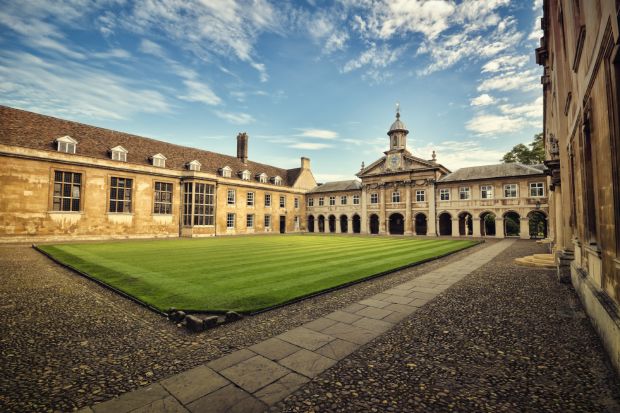Planning to Study in Ireland?
Learn about universities, programs, rankings, intakes, eligibility and admissions.
Why Study in Ireland?

Top Quality Universities
Acquire specialized knowledge and industry-level skills for a successful future
- Numerous degree options
- Excellent programs in pharmaceuticals, chemistry, and technology
- Globally accredited universities
Career Advantages
Graduate and work in one of the leading countries of the world
- Part-time work opportunities
- Multinational Corporations and top Irish companies as recruiters
- Work permit and stay back opportunity for 24 months


Once-in-a-lifetime Experience
Become a part of the rich and unique Irish culture
- Exciting Irish festivals and events
- Remarkable traditional music
- Multiple places to visit- historical sites, restaurants, and more
Education System in Ireland
In Ireland, education is compulsory for all children aged between 6-16. Either the children are mandated to study till 16 years of age or they need to have 3 years’ worth of high-school education. The education system of Ireland is divided into three levels for each of which state funded education is available. Pre-school education is provided from private sources. Three levels of education in Ireland are:
- First Level: Primary Education
Children in Ireland are not legally mandated to attend school until 6 years of age but they can enroll in school in September following their fourth birthday. Most of the primary schools are owned by private sources which represent different religious communities but are funded by the state.
- Second Level: Post-Primary Education
The Post-primary education is divided into junior cycle(which is for three years) and senior cycles (which is for 2 years). Students usually begin their junior cycle when they are 12 years old. In their senior cycle, students are required to choose a program which leads them to a Leaving Certificate, the Leaving Certificate Vocational Programme or the Leaving Certificate Applied. The nature of the certificate decides what kind of third level education the student can have.
- Third Level Education
It comprises universities which have degree granting powers in various bachelor’s, master’s and doctorate programs; the technological sector focussing on subjects like business, engineering and science, music, and linguistics; and colleges of education which cater to teacher training at various levels.
Apart from these, Adult education comprises the training and courses offered to students who have completed their studies up to the second level but did not partake in the third level. It includes Post-Leaving Certificate courses; the Vocational Training Opportunities Scheme and Youthreach programs.
Top Programs to Study in Ireland
Ireland’s economy is growing and Dublin has become one of the busiest commercial centres of the world. Industries such as Finance, Information Technology, Life Science and Pharmaceutical are growing and that reflects on the top courses that the country has to offer.
- Business Analytics
- Data Science
- Investment Banking and Finance
- Pharmaceutical Sciences
- Construction
Admission Intakes in Ireland
There are two Intake periods in Universities and Colleges across Ireland. The two Intakes or semesters are:
- Autumn Intake or Semester I
Application process open from September till December
- Spring intake or Semester II
Application process open from late January till May
How to Study in Ireland?
The admission process to study in Ireland is as follows:
- Research: The students should research about the availability of the courses and the universities that offer programs of their interest. They should also plan their finances well in advance.
- University Shortlisting: Once the list of available universities is there, a student needs to shortlist a few courses that he can apply to as per his profile and preferences.
- Appear for Eligibility Exams: The scores of eligibility exams and English proficiency exams shall be required when the students start their application.
- File Application: The student can then start gathering all relevant documents and start applying.
- Student Visa Application Process: Once the admission offer letter is received, a student can start filing the visa application. It shall require documents such as identity and financial proofs. A visa interview is held and post that, it is decided whether the visa is approved or rejected.
Costs of Studying in Ireland
The costs of studying in Ireland are:
- UG program: €9,850 to €25,500 annually
- PG program: €9,500 to €34,500 annually
- Doctorate degree: €9,500 to €34,500 annually
Other expenses include:
- Transportation: €65 – €85
- Utilities: €30 – €50
- Accommodation: €300-600
- Books: €75
- Food: €250 – €350
- Personal/Miscellaneous: €200 – €300
- Health Insurance (annually): €500 – €800
Scholarships in Ireland
There is a wide range of scholarships available for applicants to apply for from sources such as the Government of Ireland, the university you are applying to or other external sources. Some of the available scholarships are:
- Irish Aid funded Fellowship Training Programme
- Galway Mayo Institute of Technology scholarships
- Education Future International Scholarship 2021
- BComm Strategy Capstone Team Award 2020
- Dr. Brendan Richardson Memorial Prize 2020
- Monex Scholarship Program 2020
- Hugh Lane Gallery Curatorial Award
- Peter Real Analog Bernal Awards
Ireland Student Visa
The premier requirement of getting a Student Visa of Ireland is to get accepted in an Irish university. There are different student visas that depend on the duration of your stay or the length of your course.
- C-type study visa is for all students whose course is of the duration of 3 months or 90 days.
- D-type study visa is a student visa which allows you to study beyond the duration of three months. For this, you would have to register your request with the Garda National Immigration Bureau to be granted permission.
Application procedure:
- You can apply for a student visa upto 3 months before you are due to arrive in Ireland.
- You can fill and submit your student visa application on the Irish Naturalization and Immigration Service website. You will be required to submit documentation and biometrics.
- The application takes about 4-8 weeks to be processed.